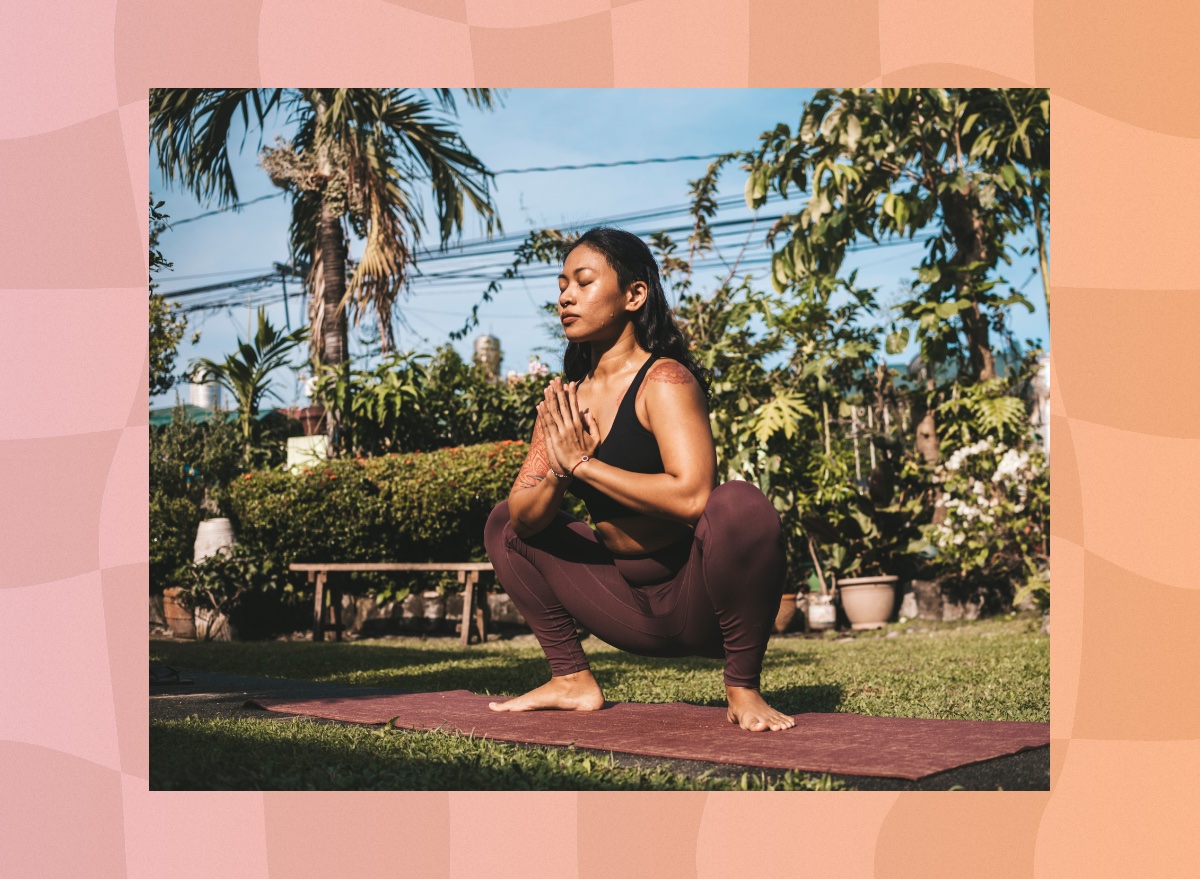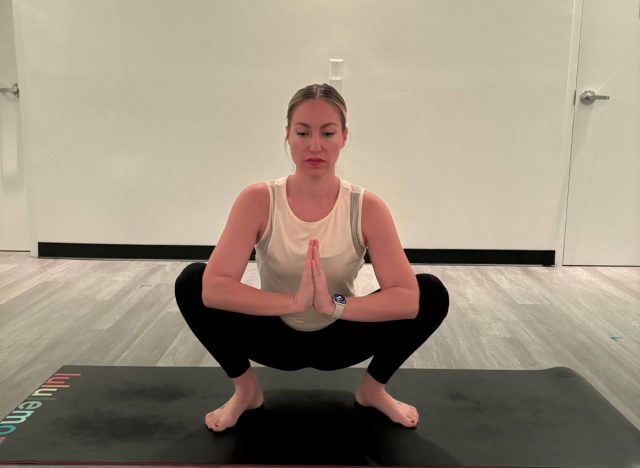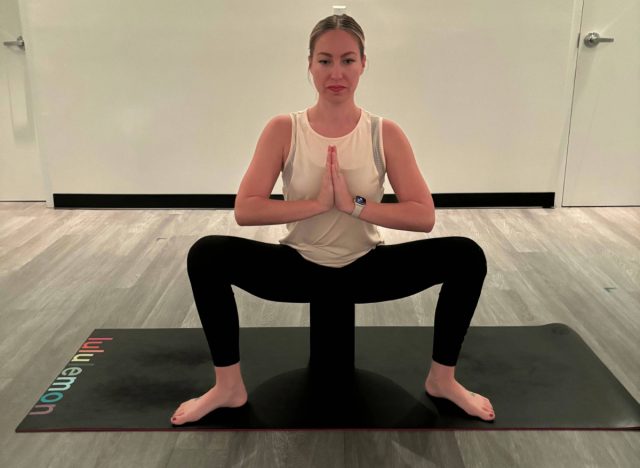People Swear by Doing 'Yogi Squats' To Boost Mobility

As you age, preserving mobility is essential to live a good quality of life. Staying active will help keep your bones, body, and mind in tip-top shape so you can function independently. Here's a little newsflash: People swear by doing "yogi squats" to boost mobility, and the exercise really seems to work! We spoke with a trainer who shares everything to know about yogi squats and how they can help maximize your mobility and overall fitness as you age.
How Do Yogi Squats Improve Flexibility and Mobility?

Yogi squats fire up multiple muscles and joints, helping to improve mobility and flexibility. The squatting position stretches out your inner thighs, hips, groins, back torso, and ankles while building strength in the legs, knees, feet, and lower back, explains Valerie Meyer, ERYT-500 and corporate trainer for YogaSix. Maintaining a tall posture in the pose also creates space in your spinal column and lumbar spine.
Incorporating yogi squats into your mobility workouts offers many benefits. For one, this exercise engages and strengthens major muscles in your lower body, such as the glutes, hamstrings, and quads.
"By strengthening the lower body and core muscles, yogi squats can help improve posture and balance," Meyer tells us. "[The] yogi squat is a deep hip opener that allows practitioners to access and strengthen the pelvic floor muscles, releasing stiffness and tightness from the hips, legs, and lower back. Regular practice of this pose increases flexibility in the hip and knee joints, preparing the body for other yoga poses. The position of the hands helps strengthen the chest and shoulders, improving blood circulation and flexibility."
How To Do It:
- Stand tall with your feet placed hip-distance apart and slightly turned out.
- Bend both knees and lower your glutes toward the floor as you descend into the yogi squat.
- Maintain an elongated spine and open your thighs wide so your torso moves between them.
- Bring your hands to your heart's center.
Common Mistakes To Avoid When Performing Yogi Squats

When performing yogi squats, there are a few things to keep in mind.
"Some people might keep their hips above the knees and their weight too far forward (into the balls of their feet)," Meyer cautions. "This position does not allow their body to drop into the pose. If this is an issue, use a block or two to sit on."
In addition, your heels may rise when you squat. To become better balanced, position a folded blanket below your heels for added support. "Otherwise, the pose will place more pressure forward rather than down," Meyer adds.









